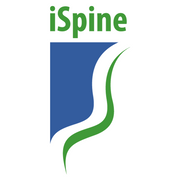How Coping Skills Help With Chronic Pain Management

As you age, you learn how to better adapt to your surroundings. This skill becomes especially important in times of hardship, such as during chronic pain management. By learning coping skills, you can live a fuller, happier life, even if your physical condition remains. Here’s a closer look at these techniques and how you can implement them.
What Are Coping Skills?
Coping skills are learned techniques that help you improve your well-being. If you’re dealing with a mental health issue, such as anxiety, you can learn coping skills from a therapist, who will teach you how to process emotions and recognize stressors.
However, coping skills can also be applied to chronic pain management. If you have a slipped disc or carpal tunnel, you may experience physical pain daily. This can affect your mental and emotional state, making you feel irritated, worried or even angry. With coping skills, you can work backward, improving your mental and emotional health first. Since stress can trigger several chronic pain issues, it’s essential to calm your mind if you hope to relax your body.
What’s the Difference Between Healthy & Unhealthy Coping?

You’ll find plenty of treatment options along your chronic pain management journey, from prescriptions to surgeries. However, if you’re still experiencing pain or want to avoid these solutions, you can use healthy coping skills to alleviate discomfort. For example, during a period of excess pain, it may help to meditate or practice a deep breathing exercise. Alternatively, if your pain is making you feel frustrated, journaling about your feelings or venting to a friend might grant you a release. Other examples of healthy coping mechanisms include going for a walk or swim, maintaining a healthy diet and sleep schedule, taking a warm bath or shutting off the lights and listening to relaxing music.
On the other hand, there are coping mechanisms you’ll want to avoid. While consuming alcohol or tobacco products may bring you short-term relief, it can worsen your physical health and lead to feelings of guilt, which will raise your stress levels in the long run. It’s also important to avoid excess caffeine, even if you feel it gives you the energy to make it through a day with chronic pain. Other examples of unhealthy coping techniques include overeating, social estrangement and self-harm.
If you’re hoping to enhance your chronic pain management skills with healthy coping mechanisms, turn to iSpine Pain Physicians in the Twin Cities, MN. This team knows that chronic pain is a long and winding journey, and they’re prepared to help every step of the way. Working with patients throughout Maple Grove, Coon Rapids, Chaska, Shakopee, Sartell and Delano, they make it easy to find treatment close to home. Learn more about their treatment options online, or call (763) 201-8191 to make an appointment today.
About the Business
Have a question? Ask the experts!
Send your question

